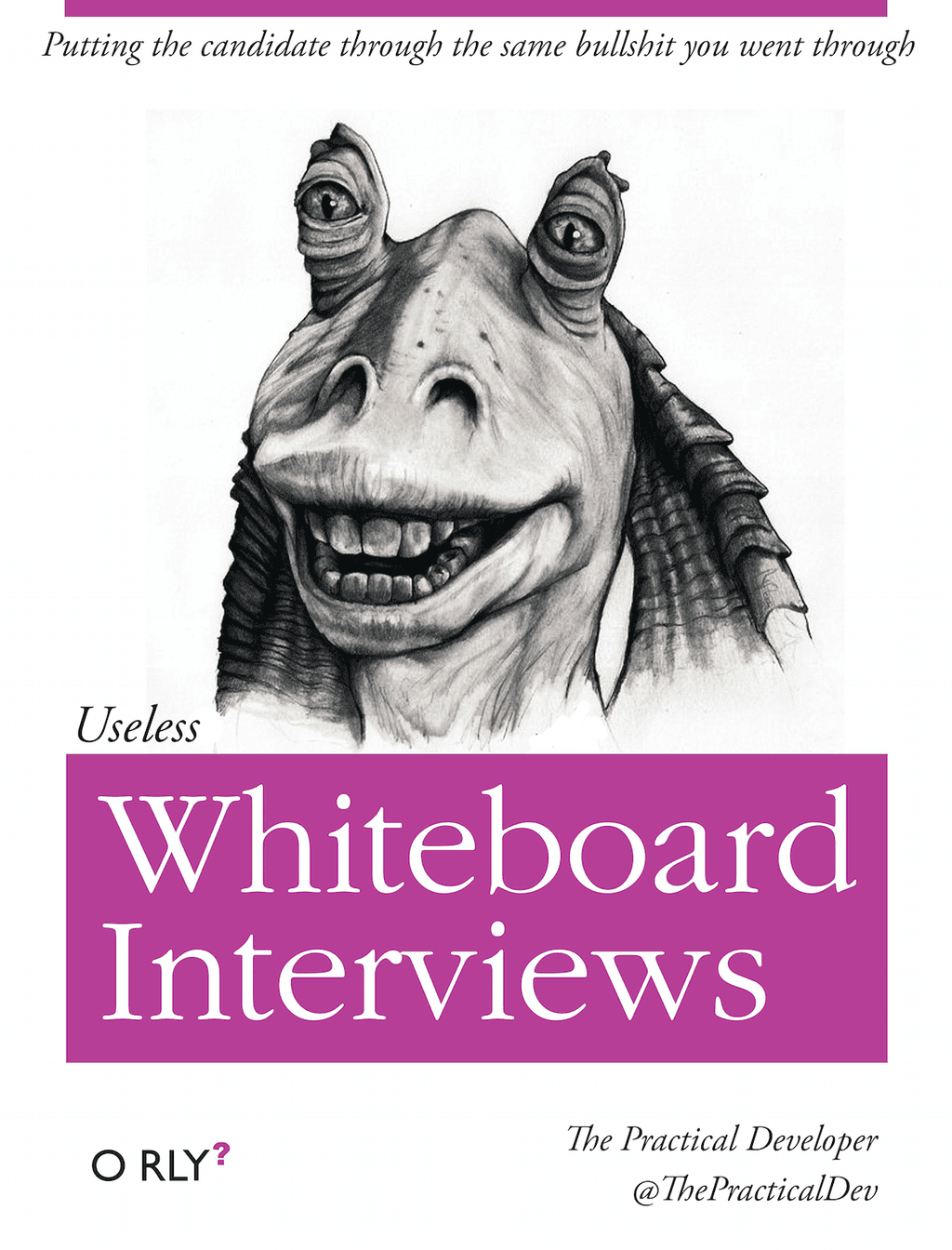
In the competitive and ever-evolving ecosystem of Devlandia, where the brightest minds vie for positions within the towering tech conglomerates and nimble startups that populate its landscape, there exists a controversial gauntlet known as "Whiteboard Interviews." This practice, steeped in tradition and contention, has become a rite of passage for many, encapsulated by the rueful acknowledgment of its cyclical nature: "Putting the candidate through the same bullshit you went through."
At the forefront of our story is Taylor, a seasoned developer and interviewer whose own ascent within Devlandia was marked by the trials and tribulations of whiteboard interviews. Taylor, now in a position of influence, finds themselves at a crossroads, torn between upholding the status quo and the growing realization that the practice may be more a relic of tradition than a meaningful measure of a candidate's potential.
As Taylor navigates the complexities of the hiring process, they are confronted with a diverse array of candidates, each bringing their unique perspectives, skills, and experiences to the table. The whiteboard looms large in the interview room, a symbol of the challenges that lie ahead—not just for the candidates, but for Taylor, who questions the efficacy and fairness of this method.
The process unfolds as a series of interactions that are as revealing as they are challenging. Candidates are asked to solve algorithmic puzzles and coding problems, their thought processes and technical prowess laid bare for scrutiny. For some, the whiteboard is a battlefield on which they shine, their proficiency in translating complex problems into elegant solutions on full display. For others, it is a stumbling block, an artificial barrier that fails to capture their true abilities and potential contributions.
Throughout these sessions, Taylor is reminded of their own journey, the stress and anxiety of being on the other side of the whiteboard. The realization that they are now perpetuating the same cycle of stress and evaluation becomes a pivotal moment. "Putting the candidate through the same bullshit you went through," once a justification, now becomes a call to reevaluate the entire process.
Motivated by a desire to innovate and improve, Taylor champions a new approach to interviewing within Devlandia. They advocate for a more holistic and inclusive method that values practical skills, collaborative problem-solving, and a demonstration of real-world application over abstract algorithmic challenges. Taylor's efforts spark a dialogue among their peers, igniting a movement towards reforming the interview process to better reflect the diverse skills and backgrounds of candidates.
"Whiteboard Interviews: Putting the candidate through the same bullshit you went through" thus transforms from a statement of resignation to a narrative of change. Taylor's journey becomes a catalyst for reimagining how talent is assessed and nurtured in Devlandia, inspiring a shift towards practices that are equitable, inclusive, and reflective of the multifaceted nature of software development.
In the annals of Devlandia's history, the evolution of whiteboard interviews stands as a testament to the power of introspection, empathy, and the willingness to challenge the status quo. It serves as a reminder that the practices of the past need not define the future, and that in the quest for talent, the true measure of success lies in recognizing and cultivating the potential in each candidate.